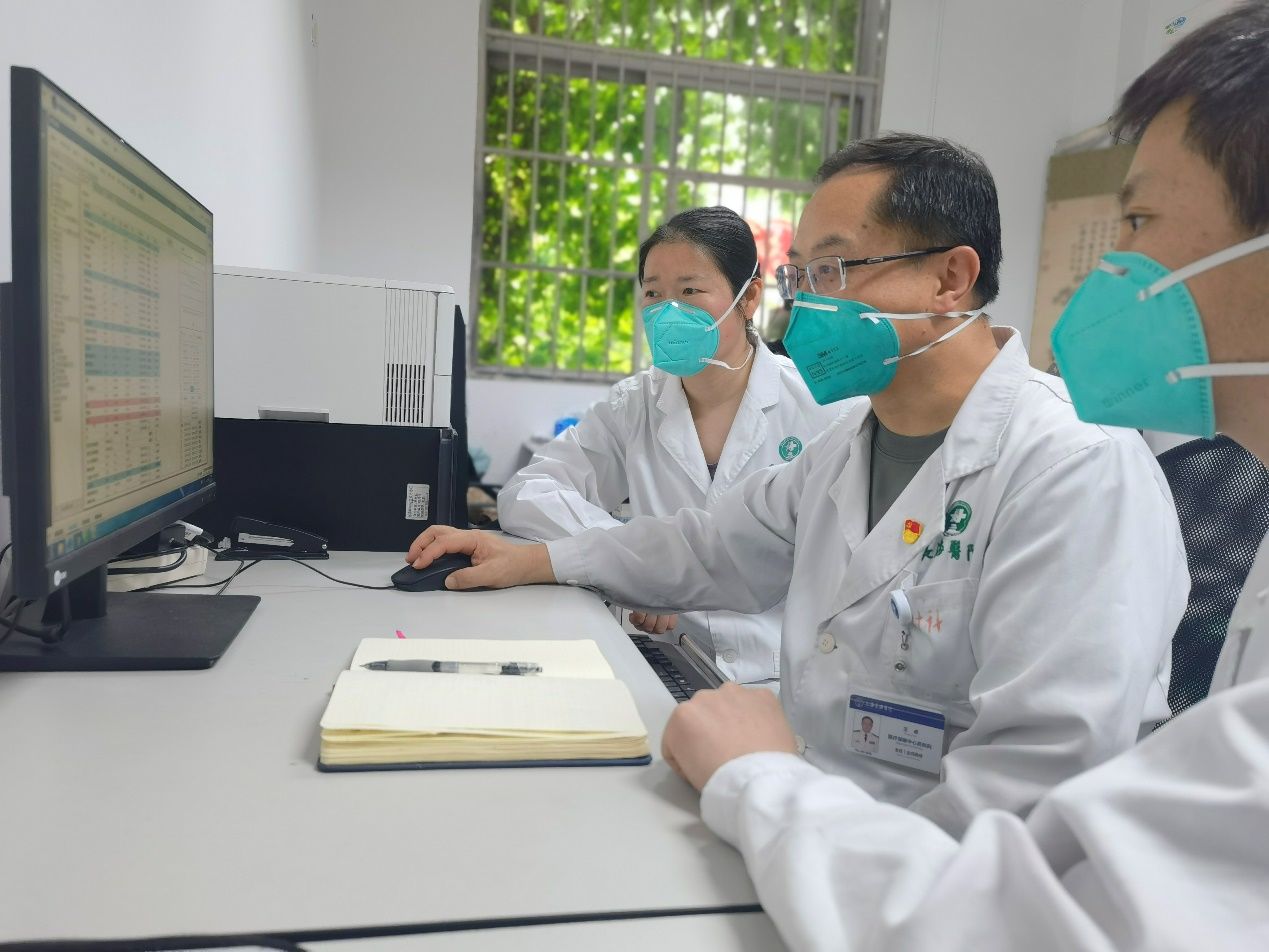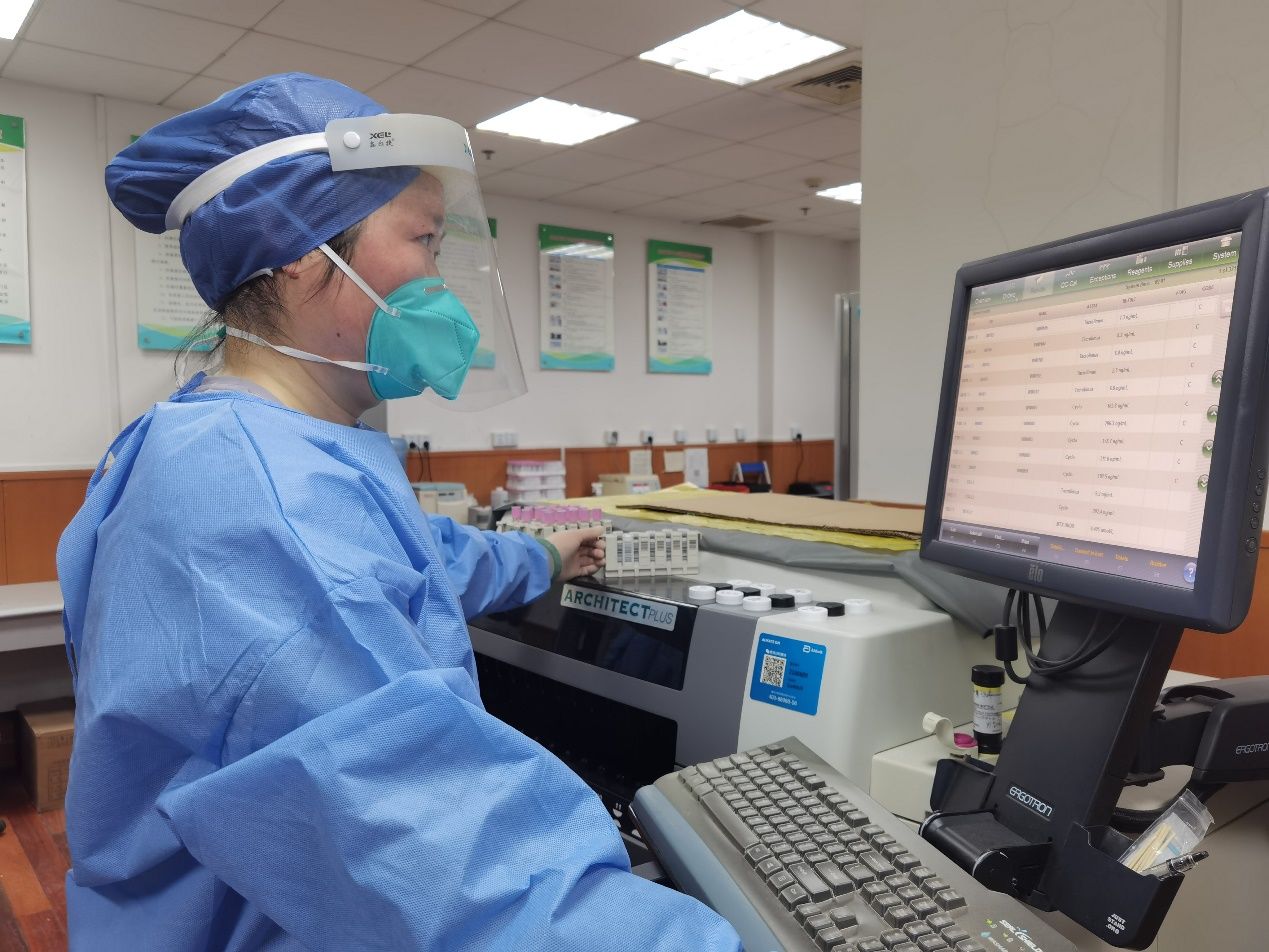
A few days ago, in the outpatient hall of the First Affiliated Hospital of Naval Military Medical University (Changhai Hospital), Mr. Zhang looked at his examination report – blood The creatinine index was significantly higher than the last physical examination, suggesting a decline in renal function.
Mr. Zhang has received a kidney transplant and needs to go to the hospital for regular check-ups. At the same time, he is also a positive infected person who has been cured and has completed home isolation and other prevention and control requirements. He found his attending doctor and explained the situation.
“We often encounter changes in relevant indicators in clinical practice. Generally, it is determined by the concentration of anti-rejection drugs in the body. There is no evidence that it is related to the new coronavirus infection. Don’t be nervous. You come to our pharmacy department. They will further monitor your blood concentration of cyclosporine, and then we will adjust the anti-rejection treatment plan based on the relevant results.” The organ transplant doctor of Changhai Hospital put forward treatment opinions.
Organ transplant patients need to take anti-rejection drugs for life, and they are the main objects that the clinical pharmacists of Changhai Hospital provide long-term TDM (therapeutic drug monitoring) monitoring.
Mr. Zhang is also the first patient encountered by the Pharmacy Department whose blood concentration was measured after the positive for the new crown turned negative. The closed-loop laboratory of the testing pharmacist was used to measure the blood concentration of cyclosporine for the patients several times in a row.
After nearly a month of clinical treatment with TDM support, his cyclosporine plasma trough concentration was maintained within the therapeutic window of 100-150ng/ml, and his serum creatinine decreased from 178μmol/L to 150μmol/L. The glomerular filtration rate increased from 39.7ml/min to 47.8ml/min, and renal function was effectively recovered.

Since March, some liver, kidney, heart, hematopoietic stem cell transplant patients have been unable to go to the hospital for consultation on medication in time. In order to effectively solve the problem of urgent, difficult and longing for transplant patients’ medication, the TDM team of Changhai Hospital instructed nearly 300 transplant patients nationwide to use rational medication through Internet hospitals, WeChat and telephone. According to the individualized pharmaceutical service testing needs of special patients in hospital wards and outpatient clinics, monitoring services for immunosuppressive drugs, anti-infective drugs, anti-epileptic drugs, anti-tumor drugs and cardiovascular system drugs have been continuously carried out.
According to statistics, from March 1st to May 26th, the TDM room monitored more than 2,000 drug concentration samples for inpatients and outpatients in clinical departments such as organ transplantation, thoracic and cardiac surgery, and hematology. Second-rate.
Introduced by Wang Zhuo, deputy director of the TDM Pharmacists Branch of the Chinese Pharmacists Association and director of the Pharmacy Department of Changhai Hospital, by measuring the concentration of drugs in blood or other body fluids, using pharmacokinetics and according to patient and clinical characteristics, design Individualized dosing regimens can improve drug efficacy and avoid or reduce toxic and side effects; at the same time, through individualized medication parameters, clinicians can “know” when taking medication, reduce the blindness of medication doses, and maximize patient outcomes. benefit with minimal risk.
Since the 1980s, Changhai Hospital took the lead in establishing a testing laboratory in China, constantly improving laboratory design, expanding testing varieties, and exploring a pharmaceutical service model from laboratory to clinical. The department also co-authored the “Shanghai Pharmacy Service Specifications (Trial)” sub-volume “Medical Institutions Clinical Treatment Drug Monitoring Service Specifications (Trial)”, and participated in the compilation of 6 domestic TDM guidelines/consensus.
Author: Li Chenyan, Bai Jin, Wang Xuebin, Jia Lei
Editor: Li Chenyan
Responsibility Editor: Jiang Peng
*Wenhui’s exclusive manuscript, please indicate the source for reprinting.